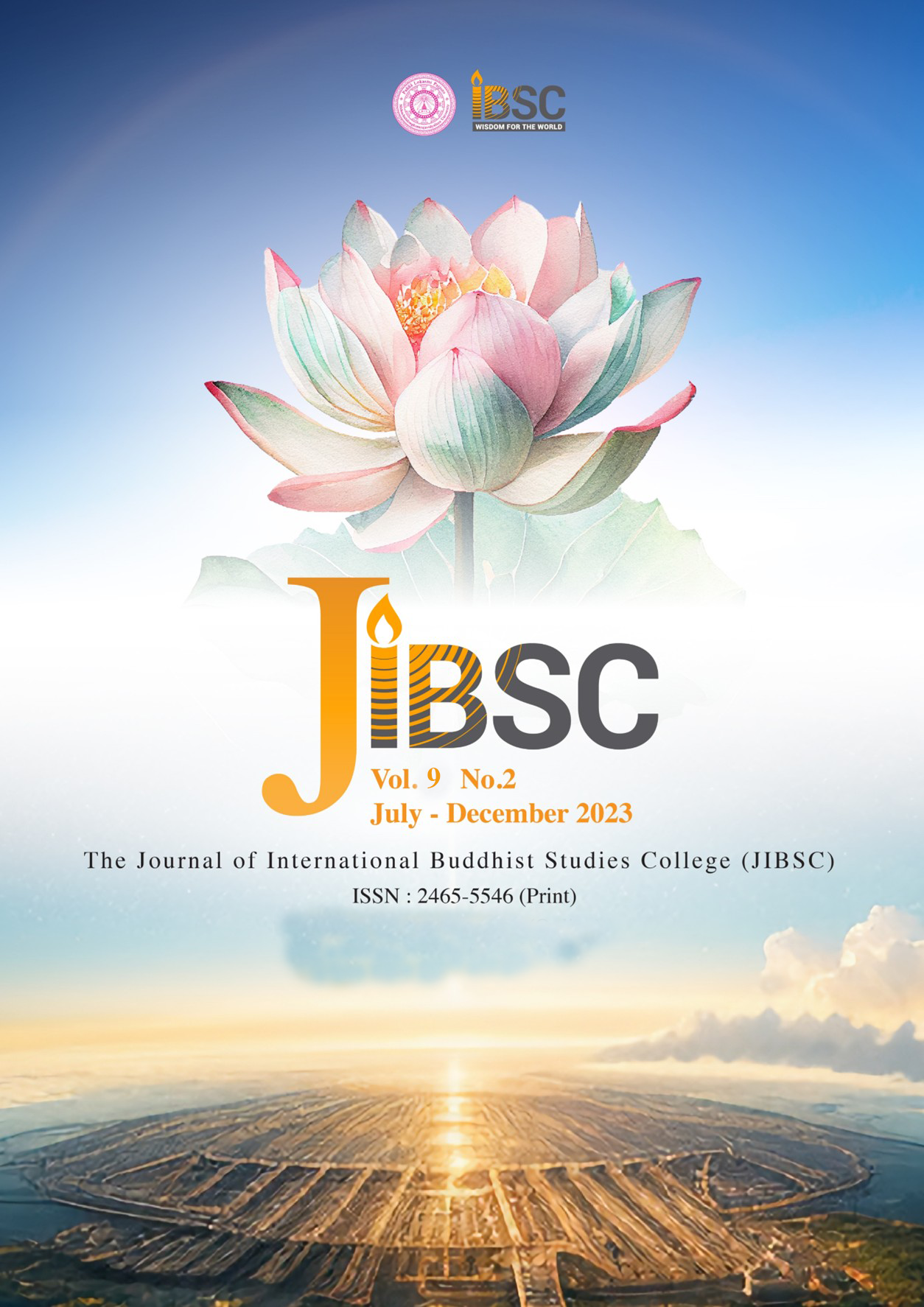Human Nature and Human Destiny in Existentialism
Main Article Content
Abstract
Existentialism begins with contemplation on philosophy to solve the problems of life and society of the Danish European Soren Aabye Kierkegaard, in the 19th century, proposed a philosophical approach to the study of the human being, which he called the existentialism of man, and was the first to study this philosophy. It is thus recognized as the father of Existentialism. Then, in the 20th century, a French philosopher, Jean-Paul Sartre, proposed an existential philosophy and emphatically accepted it as a philosopher of Existentialism. Since then, Existential philosophy has been a philosophy that accurately places great importance on the direct study of nature and human fate. Philosophers in this field devoted their intellect to studies, spreading the concept of humanity. The aim of man should be in the present life where each human being is equal, intellectual, conscious, has the right to choose, has the freedom to do, to be according to his or her desires, along with responsibility. Human nature in Existential philosophy means the existence of human beings before anything later. Each human being can be sure of each person's existence first, and then seek and be sure of the otherness that follows. Human existence is not restricted, that is to say, there is freedom, ready to be, to be anything, as personal self would choose. This philosophy aims to promote the existential awakening of human beings to face life and societal problems with humans themselves in a self-conscious manner in a world where each person has to live together.
Article Details
The Journal of TCI is licensed under a Creative Commons Attribution-NonCommercial-NoDerivatives 4.0 International (CC BY-NC-ND 4.0) licence unless otherwise stated. Please read our Policies page for more information on Open Access, copyright and permissions.
References
Britannica.com (2020). Existentialism. Retrieved on 15 January 2563 from https://www. britannica.com/topic/existentialism
Pantip Suphanakorn. (2000). Existentialist Philosophy. Bangkok: Ramkhamhaeng University Press.
Encyclopedia of Philosophy (Online) (2022). Existentialism. Retrieved on January 10, 2022, from http://www.parst.or.th/philospedia/Existentialism.html.
Kirti Bunchua. (1978). Existentialism. Bangkok, Thai Wattanapanich Press.
Pantip Suphanakorn. (2000). Existentialist Philosophy. Bangkok: Ramkhamhaeng University Press.
Pinit Ratanakul. (1998). Philosophy of life of Jean-Paul Sartre. Bangkok,


